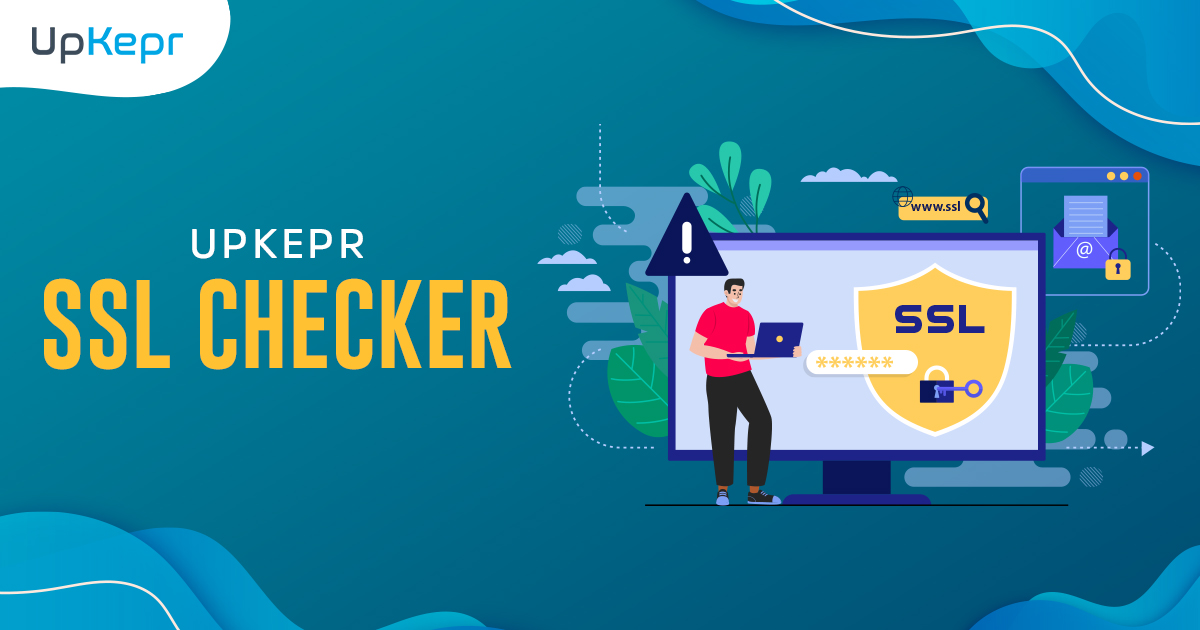
How to Identify and Fix Issues with a Website Performance Monitoring Tool

Today, a website is the foundation of any strong online presence. Whether you're running a business website, or an e-commerce store, maintaining optimal website performance is crucial. Poor website performance can frustrate users, drive away potential customers, and even harm your search engine rankings. Identifying and fixing common website performance issues can help you provide a seamless experience for your visitors while safeguarding your site’s reputation.
In this guide, we’ll walk through some of the most common website performance issues and provide simple solutions to fix them.
1. Slow Page Loading Speed
One of the most frequent complaints users have is slow page loading times. Studies have shown that users expect a website to load within 3 seconds or less. If your site takes longer, it can result in high bounce rates and lost business. Common causes of slow page loading speeds include unoptimized images, excessive JavaScript, or a slow server.
How to Identify:
- Use tools like Google PageSpeed Insights, GTmetrix, or UpKepr to analyze your website’s load time.
- Check for large image files, too many redirects, or render-blocking resources.
How to Fix:
- Compress images before uploading them to your website.
- Minimize the use of heavy scripts or asynchronous loading for non-essential elements.
- Consider upgrading your web hosting plan if the server response time is slow.
To continuously monitor your site’s speed and receive alerts about performance dips, UpKepr website performance monitoring tool can be incredibly helpful. It provides real-time insights and notifies you if your site is underperforming.
2. Security Vulnerabilities
A secure website is not only important for protecting user data, but it also ensures that your website isn’t exposed to malware, hackers, or data breaches. Website security vulnerabilities can lead to significant harm to your reputation and can also affect your SEO ranking, as search engines prioritize secure websites.
Monitor Your Website
How to Identify:
- Regular security scans using tools like UpKepr or Google’s Safe Browsing tool.
- Keep an eye on strange traffic patterns or unusual changes to your website's code.
How to Fix:
- Regularly update your website’s software, including plugins, themes, and the core platform (especially for WordPress and other CMS users).
- Use strong, unique passwords with the UpKepr Password Generator and enable two-factor authentication.
- Integrate your website with UpKepr to enjoy worry-free management. We’ll oversee SSL certificate expirations, scan for malware, and notify you promptly of any issues, ensuring your website's security and performance are always in check.
- Install a web application firewall (WAF) and enable server-side security measures.
3. SSL Certificate Issues
An SSL certificate is a security protocol that encrypts data between the user’s browser and your website. Having a valid SSL certificate is crucial for website security and SEO. Websites without SSL certificates display a “Not Secure” warning, which can deter visitors.
How to Identify:
- Check if your site is showing "Not Secure" in the browser's URL bar.
- You can also run an SSL test using the UpKepr SSL certificate checker to ensure your certificate is properly configured and up to date.
How to Fix:
- Install or renew your SSL certificate. Many web hosts offer free SSL certificates via Let’s Encrypt or other services.
- Configure your website to always use HTTPS by setting up redirects from HTTP to HTTPS.
- Regular monitoring of your SSL certificate's expiry date is crucial to prevent downtime from expired certificates. With UpKepr, you can stay focused on your business while we handle the monitoring for you.
- UpKepr website performance monitoring tool includes features for tracking SSL certificate status, ensuring that you’re always notified when it’s time for renewal.
4. Domain Age and Expiry
The age and expiry date of your domain can impact both your website’s credibility and SEO performance. Domains that are too new might have lower trust scores, while those nearing expiration can lead to website downtime if not renewed in time.
How to Identify:
- Use domain age checking tools or simply check your domain registrar’s dashboard for information about the domain age and expiry date.
- UpKepr offers domain age and expiry tracking to help you stay on top of renewals.
How to Fix:
- Renew your domain well in advance to avoid losing ownership or experiencing downtime.
- Consider registering your domain for multiple years to reduce the hassle of annual renewals.
- Domains with longer histories tend to have better SEO scores, so avoid changing domains unless absolutely necessary.
5. Website Downtime
Website downtime can significantly impact your business, especially if your site is used for transactions or lead generation. Every minute of downtime can result in lost traffic, sales, and damage to your online reputation. Website downtime can be caused by server issues, expired domain registrations, or cyberattacks.
How to Identify:
- Use uptime monitoring tools like UpKepr to track your website's availability and receive instant alerts when your site goes down.
- Check your web host’s status page or contact their support team if your site is down frequently.
How to Fix:
- Choose a reliable web host with a good uptime track record. Opt for a managed hosting service if you are not technically inclined.
- Regularly backup your website to avoid data loss in case of a cyberattack or server malfunction.
- If downtime occurs due to a DDoS attack, consider implementing a content delivery network (CDN) with built-in DDoS protection.
UpKepr website performance monitoring tool offers real-time downtime alerts so you can quickly resolve any issues and minimize disruptions.
6. Performance Metrics
To ensure your website is functioning optimally, it's important to regularly review performance metrics such as page load times, server response times, and user engagement data. These metrics offer insights into areas that may need improvement and help you measure the effectiveness of your optimizations.
How to Identify:
- Use Google Analytics to track user behavior, bounce rates, and session durations.
- Set up performance monitoring with UpKepr to track key metrics such as load times, error rates, and traffic spikes.
How to Fix:
- Review the data to identify any trends, such as specific pages that have high bounce rates or slower load times.
- Implement the necessary improvements, such as optimizing images, reducing the number of plugins, or switching to a faster server.
- Keep a close eye on performance metrics to ensure your website remains in peak condition.
7. SEO Issues
Website performance directly affects your SEO ranking. Slow websites, security issues, and unoptimized content can all lead to lower rankings on search engines. By improving your website’s performance, you can boost your visibility and attract more traffic.
How to Identify:
- Use SEO audit tools like Google Search Console, Ahrefs, or UpKepr performance monitoring features to identify common SEO issues like broken links, missing meta tags, or slow page speeds.
How to Fix:
- Regularly update your website’s content and metadata to keep it optimized for search engines.
- Use tools to identify and fix broken links and redirects that could be harming your SEO.
- Ensure your website’s performance metrics, such as page speed and mobile-friendliness, meet Google’s standards.
Conclusion
Maintaining your website’s performance is essential for providing a positive user experience and improving your online presence. Tools like UpKepr website performance monitoring tool help make this task easier by offering real-time insights into your website’s health and notifying you when issues arise.
By regularly monitoring and addressing performance issues like page loading speed, security vulnerabilities, SSL certificate status, and domain expiry, you can ensure your website is running smoothly and keeping visitors happy.



























































































 Sign Up with Google – Free
Sign Up with Google – Free Sign Up with Github – Free
Sign Up with Github – Free